Related Research Articles
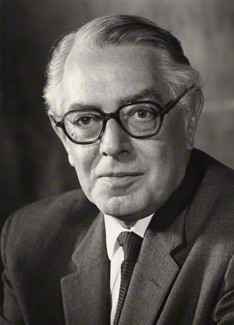
Edward Arthur Alexander Shackleton, Baron Shackleton, was a British geographer, Royal Air Force officer and Labour Party politician.

Robert Temple Armstrong, Baron Armstrong of Ilminster, was a British civil servant and life peer.
John Patrick Lionel Petre, 18th Baron Petre, is a British peer and landowner who was the Lord Lieutenant of Essex, succeeding Robin Neville, 10th Baron Braybrooke in October 2002. He is the 18th Baron of the Petre family, an old recusant family.

Edward Ettingdere Bridges, 1st Baron Bridges, was a British civil servant.

Admiral of the Fleet Sir John Julian Robertson Oswald was a senior Royal Navy officer. After training as a gunnery specialist, Oswald commanded a frigate and then a destroyer before achieving higher command in the navy. He served as First Sea Lord and Chief of Naval Staff in the early 1990s. In that capacity he advised the British Government on the reduction in the size of the fleet under the Options for Change restructuring programme and on the deployment of Naval Support for the Gulf War in 1991: he also made the decision that members of the Women's Royal Naval Service should be allowed to serve in Royal Navy ships.
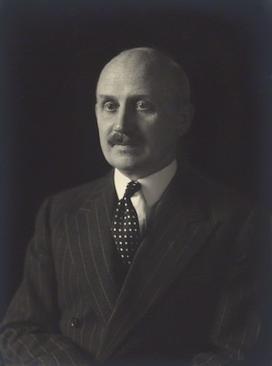
Michael Edward Adeane, Baron Adeane, was Private Secretary to Elizabeth II for 19 years, between 1953 and 1972.
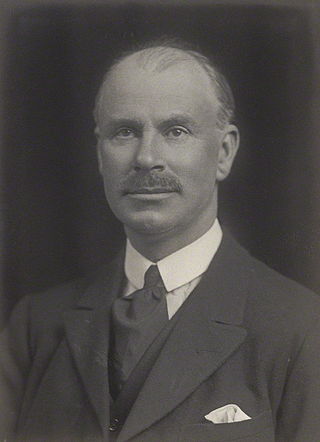
Edward William Macleay Grigg, 1st Baron Altrincham, was a British colonial administrator and politician.

General John Nicholas Reynolds Houghton, Baron Houghton of Richmond, is a retired senior British Army officer and former Chief of the Defence Staff (CDS) of the British Armed Forces. He was appointed CDS in July 2013, following the retirement of General Sir David Richards. He served as Commanding Officer of the 1st Battalion, the Green Howards in Northern Ireland during The Troubles and later became Commander of the 39th Infantry Brigade in Northern Ireland. He deployed as Senior British Military Representative and Deputy Commanding General, Multi-National Force – Iraq during the Iraq War. Later, he became Chief of Joint Operations at Permanent Joint Headquarters and served as Vice-Chief of the Defence Staff until assuming the position of CDS. Houghton retired from the British Army in July 2016, and was succeeded as CDS by Air Chief Marshal Sir Stuart Peach.

Fergus Dunlop Morton, Baron Morton of Henryton, MC, PC was a British barrister and judge who was a Lord of Appeal in Ordinary from 1947 to 1959. The son of a Scottish stockbroker, Morton was educated in Scotland and England, before being called to the English bar. After serving with the British Army in the First World War, during which he won the Military Cross, he developed a successful Chancery practice. He was appointed to the High Court in 1938, promoted to the Court of Appeal in 1944, and to the House of Lords in 1947, retiring from judicial service in 1959.

Admiral Sir John David Luce, was a Royal Navy officer. He fought in the Second World War as a submarine commander before taking part in the Dieppe Raid and becoming Chief Staff Officer to the Naval Forces for the Normandy landings. He also commanded a cruiser during the Korean War. He served as First Sea Lord and Chief of the Naval Staff in the mid-1960s and in that role resigned from the Royal Navy along with Navy Minister Christopher Mayhew in March 1966 in protest over the decision by the Labour Secretary of State for Defence, Denis Healey, to cancel the CVA-01 aircraft carrier programme.
Sir Edward Henry Charles Patrick Bellingham, 5th Baronet CMG, DSO, DL was an Anglo-Irish soldier, politician, and diplomat.

Sir Christopher Jeremy Morse KCMG was an English banker, cruciverbalist and chess composer who was Chancellor of the University of Bristol from 1989 to 2003, and was chairman of Lloyds Bank.

Sir Henry Craik, 1st Baronet, was a Scottish Unionist politician.
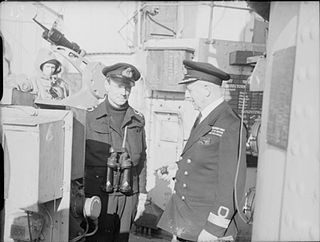
Edward Richard Assheton Penn Curzon, 6th Earl Howe,, styled Viscount Curzon from 1929 to 1964, was a British peer.
Gilbert Francis Montriou Campion, 1st Baron Campion,, known as Sir Gilbert Campion between 1937 and 1950, was a British civil servant. He served as Clerk of the House of Commons from 1937 to 1948.
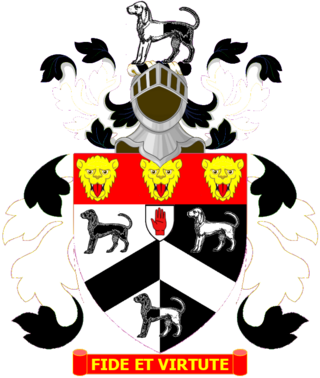
Colonel Sir Robert Eric Sherlock Gooch, 11th Baronet was a British Army officer and local politician.
Brigadier Henry Coventry Maitland-Makgill-Crichton, was a Scottish senior officer in the British Army. A graduate of the Royal Military College, Sandhurst, Maitland served as an officer in the Royal Scots Fusiliers during the Second Boer War and the First World War. He was severely wounded in both conflicts and received multiple mentions in despatches.
Sir Peter Graham was a British lawyer and parliamentary draftsman.
Sir James Christopher Jenkins, KCB, KC (Hon) is a British lawyer and retired parliamentary draftsman.

Sir Edward Henry Pelham was a British civil servant who was Permanent Secretary at the Board of Education between 1931 and 1937.
References
- ↑ Mosley, Charles, ed. (2003). Burke's Peerage, Baronetage & Knighthood (107 ed.). Burke's Peerage & Gentry. p. 648. ISBN 0-9711966-2-1.
- 1 2 3 "Caldwell, Sir Edward (George)", Who's Who (online edition, Oxford University Press, December 2018). Retrieved 27 January 2019.
- ↑ "University news", The Times, 25 July 1963, p. 15.
- ↑ The London Gazette, 29 December 1989 (supplement no. 51981), p. 3.
- ↑ The London Gazette, 31 December 2001 (supplement no. 56430), p. 2.